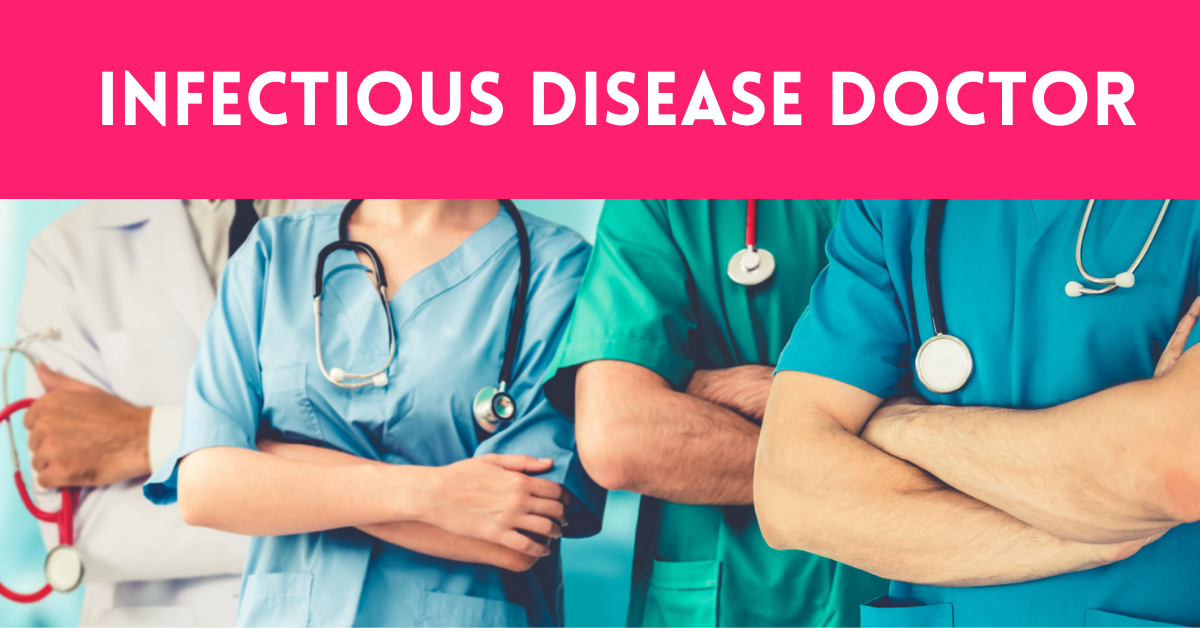An infectious disease doctor deals with the diagnosis, treatment and prevention of diseases caused by bacteria, viruses, parasites and fungi. Such a specialization requires a very wide knowledge of various branches of medicine, including internal medicine, neurology, dermatology, and venereology.
Thanks to this, an infectious disease doctor has the skills and authorization to perform a wide range of medical activities. This allows him not only to take appropriate therapeutic measures, but also to effectively stop the spread of the disease.
An infectious disease specialist is also be called as general physician who diagnoses and treats diseases caused by infectious agents such as bacteria, viruses, fungi and parasites.
Also read: What Are The Most Common Eye Diseases In The Elderly?
His duties include:
- conducting physical, medical and internal examinations in terms of infection
- treatment of medical conditions caused by infectious agents, including tropical diseases;
- collecting and directing biological material for research and interpretation of the obtained results;
- performing punctures, injections, venesection, probing and other minor procedures;
- providing help in emergencies, life-threatening conditions and in exacerbations of the course of diseases;
- consulting patients referred by doctors of other specialties;
- issuing opinions, certificates, referring to hospital treatment in infectious wards.
When should you see an infectious disease specialist?
- there has been contact with a sick person or carrier of infectious agents or with equipment contaminated with secretions or excretions of an infected person;
- there are symptoms of an infectious disease or there is a suspicion of infection - especially after returning from the tropics or regions where there was an epidemic of an infectious disease or the first cases of the disease were recorded just after our departure from there;
- the skin and whites of the eyes turn yellow;
- we had sexual contact with an infected person;
- in the dentist, doctor, hairdresser and beautician, whose services we used, the hygiene and sanitary requirements were not respected;
- infection with an infectious agent was found in a pregnant woman or in a newborn.
How often should you see an infectious disease specialist?
An infectious diseases doctor will be consulted once if the possibility of infection is ruled out during the consultation visit. We appear periodically at check-ups appointed by a specialist, but we will meet more often during the period of diagnosis and intensive treatment.
How to prepare for a visit to an infectious disease specialist?
We bring available medical documentation and a pregnancy and childbirth record (if the matter concerns a future mother or a newborn or infant). If we have traveled in the tropics, it is worth bringing a list of countries that we visited along the way.
During the visit, the infectious disease physician carries out a physical, and internal medicine examination for the suspected disease entity. If necessary, he collects and sends biological materials for tests, and then interprets the obtained results. It also provides assistance in emergencies and exacerbations of diseases, and, if necessary, refers patients to hospital treatment. Seek the infectious disease doctor at Internal Medicine Hospital Coimbatore

I’m really impressed with your article, such great & usefull knowledge you mentioned here. Thank you for sharing such a good and useful information
ReplyDeleteOnline Medical Store